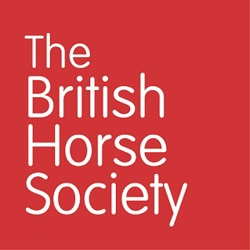If you are interested in one of those roles you could first gain the necessary civilian qualifications before embarking on your career in the mounted forces, although some of these qualifications are achievable within the services.
Who is suited to this career?
Individuals who first and foremost are interested in a career as a police officer or soldier, and are looking for a structured career pathway with progression and development opportunities
Police
Mounted police officers work as part of the emergency services to provide support where they may be more effective than colleagues on foot. There are only 13 mounted sections throughout the UK, so opportunities are highly sought after.
A mounted officer's responsibilities include liaising with rural and urban communities on horseback to police and support a variety of initiatives including safeguarding, educating and building the public’s trust and confidence.
Mounted police are also used at situations which attract large crowds such as sporting, music and cultural events as well as demonstrations and situations of disorder. Some forces use their mounted police for ceremonial duties which include escorting royalty.
A mounted officer would also be responsible for tack and equipment and the general care of their horse. There are also opportunities to coach and mentor new recruits, often including officers which have not ridden previously.
Mounted sections also have specialist equestrian roles such as grooms, trainers, coaches and managers for which BHS qualifications along with industry skills and experience are highly valued and sort after.
How to get into this career
To progress as a mounted police officer, you will need to join the service and complete your training and a two-year probationary period. Opportunities will then be open to specialise in different roles within the police service of which becoming a mounted officer is one. No previous riding experience is necessary; however, this would help your training. Mounted police forces across the UK recognise the fact that BHS Stage 1 in Complete Horsemanship gives a great practical foundation for any aspiring mounted officer.
Police services who have mounted sections where details and job opportunities will be advertised are: Metropolitan Police, City of London Police, Thames Valley Police, Gloucestershire Constabulary, Avon and Somerset Police, South Wales Police, Greater Manchester Police, Merseyside Police, Lancashire Police, South Yorkshire Police, West Yorkshire Police, Northumbria Police and Police Scotland.
Army
The Household Cavalry Mounted Regiment (HCMR)
The Household Cavalry is a regiment of the British Army consisting of The Life Guards and The Blues and Royals. Horses are no longer used as part of operational deployment but are an important part of state ceremonial occasions. The HCMR carries out mounted and some dismounted ceremonial duties on state and royal occasions, which include the provision of a sovereign's escort most commonly seen at The Queen's Birthday Parade in June each year. On a daily basis, they form the Queen’s Life Guard seen at Horse Guards Parade in central London throughout the year.
The King’s Troop
The King’s Troop Royal Horse Artillery makes up Her Majesty The Queen's ceremonial saluting battery. Soldiers in this unit drive a team of six horses who pull the First World War 'thirteen pounder' state saluting guns. Troop duties include the firing of Royal Salutes in Hyde Park on royal anniversaries and state occasions and providing a gun carriage and team of black horses for state and military funerals.
How to get into this career
In order to become a Household Cavalry Soldier you don’t need any formal qualifications. To join as an officer, you’ll need a minimum of grade C in English, Maths and a science or foreign language. Relevant experience or interest in the following is ideal: combat, driving small vehicles, telecommunication, mechanics, human resources, investigation and research.
Again, in order to become a member of the King’s Troop, you don’t need any formal qualifications. Relevant experience or an interest in veterinary work, leadership, personal fitness training/coaching and teaching is however advantageous.
Neither army pathways expect previous experience with horses, however the HCMR and King’s Troop see BHS Stage 1 in Complete Horsemanship as an advantage to any aspiring solider wishing to progress through these pathways.


